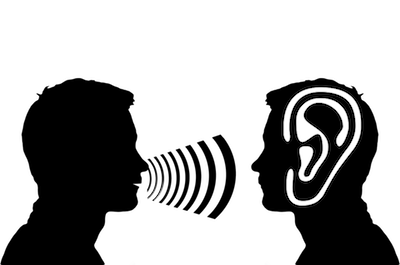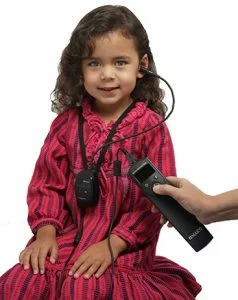Healthy hearing is important for a healthy life. But hearing loss can affect anyone at any age, with symptoms that can develop gradually over time. A hearing exam can determine whether you’re experiencing any kind of problems with your hearing. And now, you can get a hearing exam right in the doctor’s office, with new technology that allows our doctors to quickly and thoroughly assess the state of your hearing.
Try to go in with a clear idea of which questions which you would like to have answered. Hearing loss can occur for a variety of reasons, so it’s important to be specific. If you are having difficulty hearing, when is it occurring? Do you have a harder time hearing on one side than the other? Putting together a list of situations in which you have experienced trouble hearing may help offer clues to the best solution.
 Since hearing loss frequently occurs very gradually as we age, you may not immediately notice that it is occurring. Sometimes you will begin to notice that you’re having difficulty holding conversations in crowded areas, or maybe someone you live with has complained about how much you turn up the volume while watching television. A hearing exam can help identify the precise cause and nature of your hearing loss to help you and your care provider arrive at the correct solution.
Since hearing loss frequently occurs very gradually as we age, you may not immediately notice that it is occurring. Sometimes you will begin to notice that you’re having difficulty holding conversations in crowded areas, or maybe someone you live with has complained about how much you turn up the volume while watching television. A hearing exam can help identify the precise cause and nature of your hearing loss to help you and your care provider arrive at the correct solution.
Hearing exams for adults and children can take place in many settings, including community health fairs and school clinics. Exams are also done in the hospital to assess the hearing of newborns.
Some health professionals and hearing impairment advocates make a distinction between a screening, which simply identifies the presence of a hearing problem, and a hearing evaluation, which can follow a screening in order to precisely identify the causes of hearing problem. In any setting, though, a number of different tests can be used to evaluate whether someone has hearing loss, and if so, to determine the exact cause.
Hearing screening and diagnostic tests are painless and many require nothing more than sitting quietly while an instrument is placed in the ear. Simple tests used to check basic hearing functions can be performed by professionals such as community health nurses or school nurses. This kind of screening often uses pure-tone tests, in which a person is asked to wear headphones and to signal when a given sound is heard.
To get a detailed picture of a person’s hearing loss and pinpoint the cause, more sophisticated tests can be performed with the aid of audiometers, instruments which can measure such things as the sound made by the movement of tiny hairs in the inner ear and the strength of muscle reflexes that are triggered when a loud sound is heard. It’s even possible to use electrodes to track brain activity while a person is exposed to certain sounds in order to determine whether a hearing problem is related to the brain’s hearing pathways.
 If your hearing exam reveals signs of hearing loss, we may refer you to an audiologist to do more detailed testing and try to find the best solution. If there is no hearing loss, it is recommended that you have your hearing tested every ten years up to the age of 50, after which you should get a hearing exam every three years.
If your hearing exam reveals signs of hearing loss, we may refer you to an audiologist to do more detailed testing and try to find the best solution. If there is no hearing loss, it is recommended that you have your hearing tested every ten years up to the age of 50, after which you should get a hearing exam every three years.
A hearing exam is a routine and risk-free diagnostic procedure.

 Since hearing loss frequently occurs very gradually as we age, you may not immediately notice that it is occurring. Sometimes you will begin to notice that you’re having difficulty holding conversations in crowded areas, or maybe someone you live with has complained about how much you turn up the volume while watching television. A hearing exam can help identify the precise cause and nature of your hearing loss to help you and your care provider arrive at the correct solution.
Since hearing loss frequently occurs very gradually as we age, you may not immediately notice that it is occurring. Sometimes you will begin to notice that you’re having difficulty holding conversations in crowded areas, or maybe someone you live with has complained about how much you turn up the volume while watching television. A hearing exam can help identify the precise cause and nature of your hearing loss to help you and your care provider arrive at the correct solution. If your hearing exam reveals signs of hearing loss, we may refer you to an audiologist to do more detailed testing and try to find the best solution. If there is no hearing loss, it is recommended that you have your hearing tested every ten years up to the age of 50, after which you should get a hearing exam every three years.
If your hearing exam reveals signs of hearing loss, we may refer you to an audiologist to do more detailed testing and try to find the best solution. If there is no hearing loss, it is recommended that you have your hearing tested every ten years up to the age of 50, after which you should get a hearing exam every three years.
